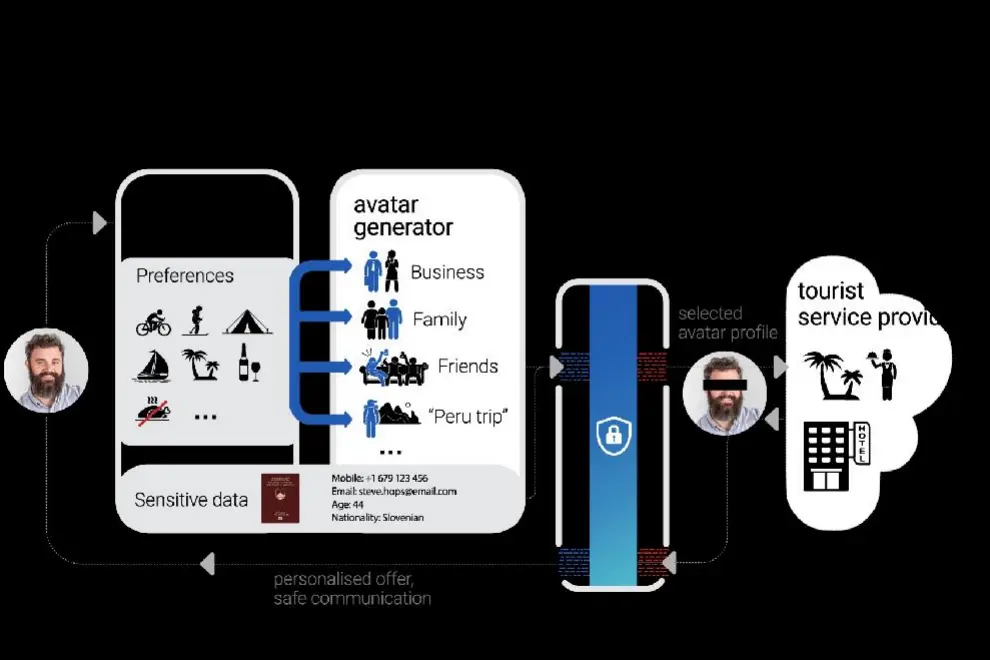Rebuilding Tourism For the Future: Project Tourism 4.0
Due to pandemic and severe travel restrictions, travel and tourism are among the most affected sectors. With a massive fail of income in 2020, the tourism industry now faces the worst crisis in history, which is all the more true for Slovenia, marking a 74% drop in foreign tourist arrivals compared to 2019, ranking our country among the most affected ones in the EU.
Re-establishing promotion and forming a unique voice to addressing tourists will undoubtedly be a massive and long-lasting challenge for the Slovenian tourism industry to recover, especially if we consider how many efforts have been put into building our pre-pandemic reputation.
What is more, at that time, we have targeted specific market segments and, above all, directed tourists to mainly predictable and well-known locations. The latter is estimated to remain one of the critical problems in Slovenia after we restart the flow of tourists. Namely, the already well-established sites will again be the most besieged. However, in the light of complying with the covid-19 measures, this will also heavily burden them. On the other hand, less-known destinations may have plenty of available capacities due to a lack of funds for promotion and may host many more tourists than usual.
Therefore, we should turn this trend in our favour and make good use of it, as private, less crowded locations will be increasingly sought after in the future. For that, we need a comprehensive approach to directing tourist flows that also includes emerging tourist destinations.
As the initiator of the Tourism 4.0 project, Arctur is working on this particular challenge, explains Tomi Iljaš, CEO: "Instead of shattering Slovenia into parts such as regions, towns and specific destinations as we did so far, we are aiming to include and promote all of our offerings as a whole. Most of all, our idea revolves around the tourist who should become the centre and co-creator of their experience, meaning that they can navigate through the country with ease according to specific factors such as time, weather, destination occupancy, price-performance and most importantly, their personal interests."
"The fastest way to reach the tourist is if they can receive all relevant information from one single point," Iljaš continues. For that, connecting the private and public sectors with users in a collaborative innovation process is a must. Moreover, this can only be possible if the "tourism industry invests intensively in digitalization to create a kind of user-friendly product that is desirable, simple and safe to use."
Exactly this idea is being developed in the Tourism 4.0 project, which received significant public funding for its innovation and brought together various stakeholders in Slovenia to advance the concept into an innovative collaborative platform for tourism, harnessing multiple approaches and innovative technologies, including AI and blockchain.
The collaboration will result in a convenient mobile app DOTI, that will function as a tourist personal wallet and will utilize new technologies for several purposes. Blockchain, for example, will be used to secure digital personal identity DOTI and enable the use of Collaboration Impact Token (CIT), a digital voucher that will change its value according to location and time. As an innovative tool, it will reward and promote positive behavior of all stakeholders of the tourism ecosystem and improve the positive effects of tourism. What is more, in order to achieve a balanced and sustainable development, the token will enable management of tourist flows. This includes diverting tourists from overcrowded destinations to the ones of the beaten path.

All in all, the Tourism 4.0 and DOTI wallet will allow the tourist to access all relevant information, book accommodations and opt for various experiences from one entry point that will also offer personalized advice and adjust the service according to their liking.
The ultimate goal of the project Tourism 4.0 is to build a collaborative tourism ecosystem centred around the local community, enabling data-driven strategic planning and boosting tourism's positive impact. Given the circumstances and situations, there could hardly be a more appropriate time for such a project, don't you agree?


